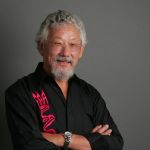The Five COP21 Opinions You Need to Hear

 David Miller | President & CEO, WWF Canada & 63rd Mayor of Toronto
David Miller | President & CEO, WWF Canada & 63rd Mayor of Toronto
Under David’s leadership, Toronto became widely admired internationally for its environmental leadership and economic strength. He is a leading advocate for the creation of sustainable urban economies, and a strong and forceful champion for the next generation of jobs through sustainability. He recently sat down with CBC’s Matt Galloway on Metro Morning to discuss the Paris Climate Talks.
- Opinion:
- Cities have two roles:
- Leadership
- Power to take actions to reduce greenhouse gas emissions.
- About 75% of emissions come from cities
- Lack of public transit is one of the biggest contributors to the problem
- Encourage the development of green buildings.
- Generate clean electricity for the citizens of your city.
- Canada is back and will establish itself as a leader at this conference.
- Cities have two roles:
 Wade Davis | Anthropologist, Author & Explorer
Wade Davis | Anthropologist, Author & Explorer
Wade recently contributed an opinion piece to the Globe Debate looking at why war has yet to be declared on global warming.
- Opinion:
- So far, we’ve only seen a ‘tepid’ response from the international community on a clearly defined threat to our well-being.
- The risks were clearly understood by all leaders at the Copenhagen conference, yet the self-interests of nations/parties were put ahead of international well-being.
- The economic burden of fully-mitigating the problem isn’t completely out of reach: just 3% of the worlds GDP.
- Canada’s new leadership has a great opportunity to break from the nations lacklustre policies of the past and lead the global efforts towards ‘a new vision of hope for the planet.’
 Ed Begley Jr.| Actor & Environmental Activist
Ed Begley Jr.| Actor & Environmental Activist
Ed has been bridging the gap between environment and Hollywood by bringing attention to the issue at events around the world. His opinion piece was featured in a recent Newsweek piece:
- Opinion:
- The two excuses that Ed’s heard the most in these past 45 years:
- 1: There is no problem. It’s all a ruse by the green groups to take away our freedom and our property rights.
- 2: There is a huge problem. But it’s so far along that there’s nothing that can be done about it.
- He can empathize with the 2nd excuse but cites the daunting challenges of the 1970s and how that was addressed and eventually reduced. Despite the fact there are four times the cars and millions more people in Los Angeles since 1970, we only have a fraction of the air pollution that we did back then, and we did it in ways that did not harm the economy.
- Attack the problem in three important ways:
- Hold our elected leaders accountable;
- hold our corporations accountable;
- hold ourselves accountable by doing everything within our means to make a difference.
- The two excuses that Ed’s heard the most in these past 45 years:
 David Suzuki | Actor & Environmental Activist
David Suzuki | Actor & Environmental Activist
As Canada’s most well-known environmental activists, David Suzuki holds a great deal of respect among international leaders attending the event. This year, he opted to direct his focus away from land, by focusing on the problems facing the worlds oceans:
- Opinion:
- The oceans are one of the most overlooked areas of conservations, currently in Canada at a protection rate of 1%. Problems include:
- Reports estimating the existence of 5-13 tonnes of plastic in our oceans
- Agricultural run-off creating “dead zones”
- Carbon Dioxide absorbed by the oceans surface is creating acidification
- One of the best ways to spur government action is reports offering tangible action plans such as “Canada at a Crossroads“
- The talks shouldn’t just be focused on land-based concerns, but also incorporate issues faced by our seas.
- The oceans are one of the most overlooked areas of conservations, currently in Canada at a protection rate of 1%. Problems include:
 Avi Lewis | Social & Political Commentator
Avi Lewis | Social & Political Commentator
Avi received plenty of acclaim for his most recent documentary (which he directed) on climate change; This Changes Everything. He recently sat down with Variety for a Q&A on climate change:
- Opinion:
- Copenhagen occured at a time when large environmental groups dominated the conversation, but now we’re at a stage of place-based struggles around the world. One in which individuals defend their land against industrial threats.
- Under President Obama’s leadership the United States has become the worlds top oil producer in spite of overwhelming evidence that the burning of carbon is one of the top contributors to climate change.
- The economic logic of our time is one of the biggest enablers of climate change denial.
